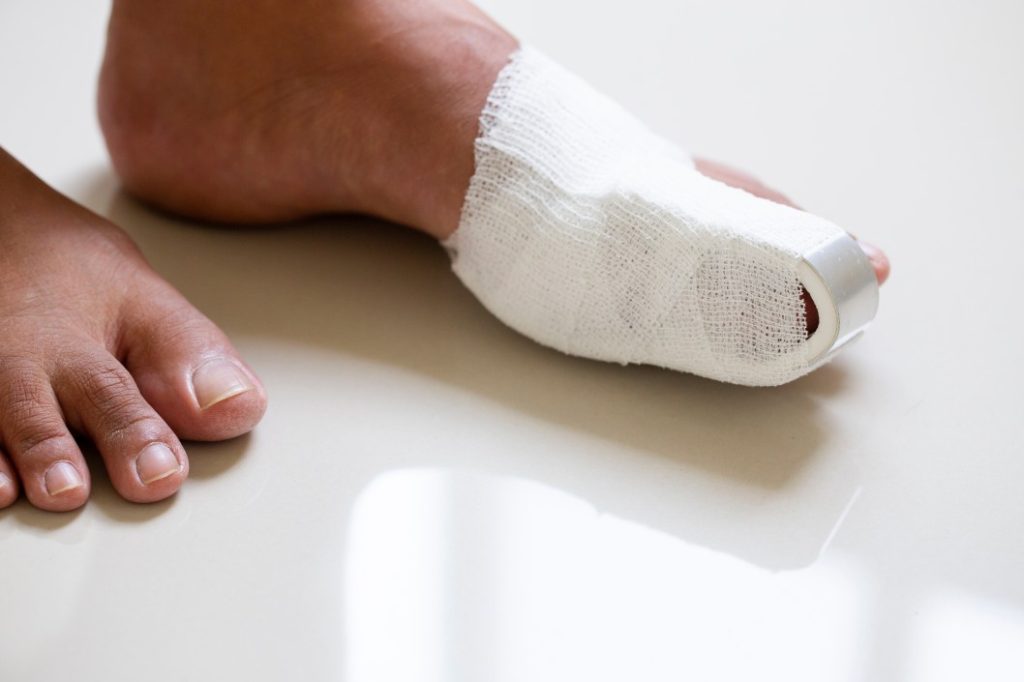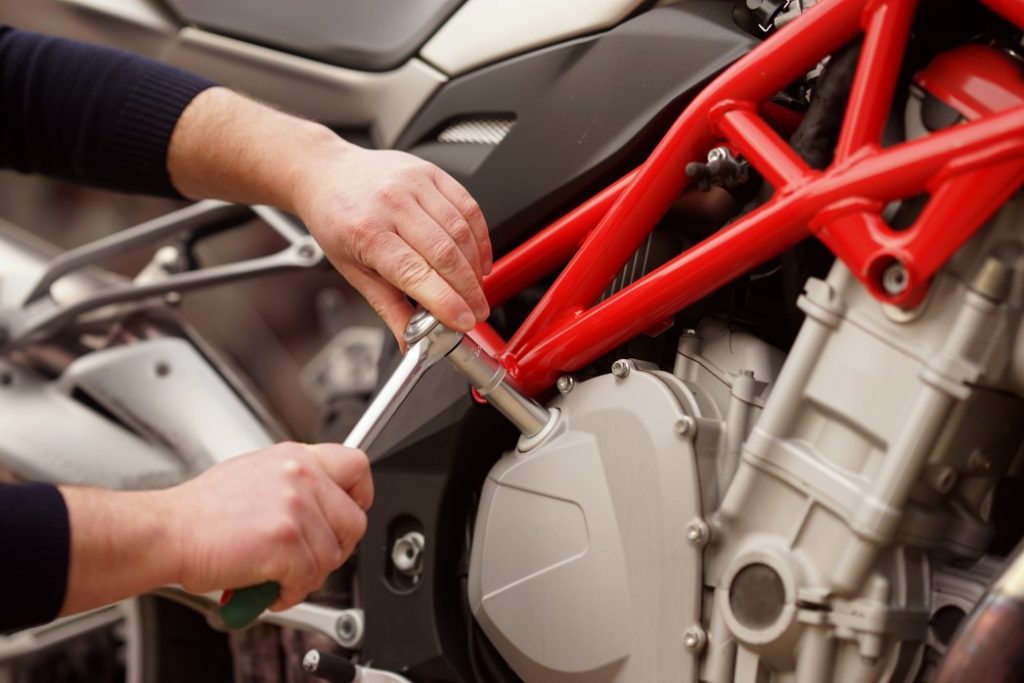Know Before You Ride – Crucial Motorcycle Helmet Laws
Since 1967, laws regarding helmets in the United States have been quite dynamic. This is because, in 1967, the federal government began requiring states to enact helmet laws to increase their use in different states.
The only way that states could receive highway construction funds or federal safety programs was if they enacted these laws. By the early 1970s, almost every state had universal motorcycle helmet laws that riders had to abide by, making it clear that the incentives put in place worked.
However, around the same time, in 1968, some states began repealing and amending motorcycle helmet laws. In 1976, several states lobbied together to get Congress to block the Department of Transportation from penalizing states that did not enact motorcycle helmet laws.
Current Motorcycle Laws In The United States
Almost every state has some kind of law in place regarding the use of motorcycle helmets laws. As of now, 19 states, as well as the District of Columbia, have motorcycle helmet laws in place. However, there are only 28 states that only require some motorcyclists to wear helmets.

As of today, there are only three states that do not have any restrictions governing the use of helmets, including New Hampshire, Iowa, and Illinois.
Some states that have universal helmet laws also have more inexpensive medical-related claim costs. These can lessen insurance costs without having tons of impact on motorcyclists.
What to Consider When Purchasing a Motorcycle Helmet
When riding in a state where helmets are legally required, the helmets often have to be DOT-approved. This means that the helmets are in compliance with the Department of Transportation. Riders often have the ability to choose between full-face and half-face motorcycle helmets.
Of course, full-face helmets offer much higher protection when it comes to serious accidents.
While non-DOT-approved motorcycle helmets will still offer some protection, it’s important that you check the rules and regulations of your state to determine whether or not driving with one would be legal.
There are also states that require the use of eye protection when on the road.
If you’re very serious about finding a helmet that can offer you the most protection, your best bet is to look for a Snell-approved helmet. These helmets are DOT-approved and go by much more rigorous standards than DOT-approved helmets.
It’s also a good idea to refrain from buying used helmets, as it can be difficult to know how much wear and tear a helmet has gone through when you buy one.
Final Thoughts – Understanding Important Helmet Laws
Knowing important helmet laws is crucial for keeping yourself safe in the case of bad accidents, and keeping you safe from legal pushback in an accident related to helmets. If you get in an accident here in California, make sure to give us a call!
We will help you gather all of the essentials, such as medical records and case evidence, so you don’t have to, all while assessing the evidence to determine the types of damages you could be awarded.
on’t suffer at the fault of someone else’s negligence without getting the compensation you deserve. Get in touch with us here at Motorcycle Advocates today!
Am I Liable For A Motorcycle Accident If I Was Lane Splitting?
While many people have their own definition of lane splitting, the true definition is when a motorcyclist is riding between two different lanes in traffic going the same direction. There are many studies out there that show riding between lanes can save motorcyclists plenty of time.
Beyond that, lane splitting can also prevent rear-end collisions and reduce traffic congestion, which is great in high-volume areas like Los Angeles.
However, there are many people that believe lane splitting is very dangerous, both for the motorcyclists lane splitting and the drivers around them. Talk to any biker and they’ll tell you how controversial of a subject it is, especially when it comes to other motorists, safety organizations, and lawmakers.
The first to allow lane splitting was California. However, there are some stipulations in place. If a motorcyclist splits lanes recklessly, they could be liable in the case of an accident. For example, many motorcyclists will split lanes, though will go 30mph or more than the traffic around them, which can be incredibly dangerous.
California’s Comparative Negligence Law
When it comes to crashes that involve lane splitting, it is often the case that judges will use California’s comparative negligence law to determine the outcome. If the defendant can prove that you were lane splitting recklessly or at a speed that the court deems unreasonable, you could receive less compensation or no compensation at all.

However, if you were lane splitting within the law that California has in place, you would likely receive the full compensation. There’s no reason it would diminish your reward.
What Kind Of Compensation Could I Expect?
As an accident victim, we guarantee that the value of your claim is the most important thing to you right now. Whether you suffered minimal injuries, such as road, or a more severe injury, such as a brain or spinal cord injury, you should know how much compensation you can expect to receive for your medical bills, your property, your time off work, and everything else.
While no motorcycle accident case is the same as the one before, there are plenty of ways people can seek damages from these kinds of cases.
Some of the most common forms of damage include:
- Motorcycle repair or replacement costs
- Legal fees
- Out-of-pocket costs
- Past and future medical expenses
- Rental car fees
- Lost quality of life
- Punitive damages
- Emotional damages
Juries often base the awards on the severity of the victim’s injuries and how greatly those injuries have had an impact on their life.
No matter why you may have gotten in a motorcycle accident in California, it is crucial that you do not speak with insurance companies or any other parties about the case before speaking with a professional attorney.
We will help you gather all of the essentials, such as medical records and case evidence, so you don’t have to. We will then assess that evidence to determine the types of damages that are owed to you.
Get in touch with us here at Motorcycle Advocates today!
Helmets In Motorcycle Accident Claims
Not only does California have a universal helmet law that every rider must abide by, but wearing a helmet can drastically reduce the risk of a severe head or brain injury in the case of a bad motorcycle accident.
Under the California helmet law, motorcyclists and passengers on motorcycles must wear helmets while riding. It’s the same thing as regular driver wearing their seatbelt. It is also important that this helmet fits snugly on your head and that it is federally approved for riding.
If you are pulled over in California and you’re not wearing a helmet or you don’t have the proper helmet, you could receive a hefty traffic citation. Not only is it dangerous to not wear a helmet while riding, but it could be the difference between you winning or losing your claim in the case of an accident.
Why Is Wearing a Helmet Relevant?
Because it is law in California to wear a helmet while riding a motorcycle, a defendant can use the fact that you’re not wearing a helmet as you are liable for your motorcycle accident injuries.
In order to create a claim or a defense that works, those injuries must have been connected to the fact that you were not wearing a helmet at the time. Most of the time, this means that the injury must have been connected to the head, the brain, the face, or the neck. Defendants won’t be able to use any bodily injury for defendant grounds when it comes to your lack of a helmet.
That defendant must be able to show sufficient proof that your lack of a helmet or non-approved helmet contributed to the injury you sustained. This is often proven with the help of experts or medical testimony.

However, with all of that said, you should never assume that you do not have any grounds to receive compensation if you’re not wearing your helmet during your accident in California. This is because California uses what is called comparative negligence law, meaning they won’t bar a plaintiff from recovery because they have partial fault for an accident.
They’ll base your potential compensation on percentages. For example, if your brain injury was 20% because you did not wear your helmet, then you will not receive 20% of the verdict awarded to you.
No one can help you determine the potential outcome than an experienced motorcycle accident attorney like the ones at motorcycle accidents.
Final Thoughts
As you can see, no matter what the case is, you should always wear a helmet while riding in California. It could be the difference between total compensation or none at all.
Here at Motorcycle accidents, we’ll help you gather all of the essentials for your claim, such as medical records and case evidence, so you don’t have to. We will then assess that evidence to determine the types of damages that are owed to you.
Don’t suffer at the fault of someone else’s negligence without getting the compensation you deserve. Get in touch with us here at Motorcycle Advocates today!
The Most Common Motorcycle Accident Injuries
When it comes to motorcycle accidents, injuries are often severe, far more than injuries regular motorists sustain after accidents. As a motorcyclist, you don’t have any protection around you. Getting hit by a vehicle can cause a wide range of injuries.
In fact, according to the National Highway Traffic Safety Administration, motorcyclists are more than 28 times like to die in an accident compared to those in a passenger vehicle. It is also the case that motorcyclists are much more likely to suffer serious injuries after an accident.
Here at Motorcycle Advocates, we’ve seen many different types of personal injuries as the result of motorcycle accidents, including:
- Traumatic brain injuries
- Skull fractures
- Broken bones
- Lower extremity injuries
- Internal injuries
- Lacerations
- Scarring and disfigurement
- Road rash
With motorcycle accidents, catastrophic and permanent injuries are far more common. It is often the case that victims of those accidents have to live with the repercussions of the crash for their entire lives. From physical scars to paralysis to brain damage and beyond, these repercussions can be incredibly difficult to live with.

What Causes Motorcycle Accidents?
One of the first steps in obtaining compensation for one of these injuries is determining the cause of the accident. It’s important to note that California is a fault car insurance state. According to the law, the party at fault must pay for the losses of the other party. The party that was the cause of your accident might have to pay for your medical bills, among other damages, including lost income, motorcycle repair or replacement, and non-economic losses.
There are many reasons why motorcycle accidents happen, though some of the most common include:
- Drivers – A distracted or negligent driver crashes into a motorcycle. If this is the case, that person’s insurance should cover the damages. This is especially true if you can prove that the driver was distracted, texting, breaking road rules, driving under the influence, or speeding.
- The Roadway – Minor roadway defects can be the cause of severe accidents. Everything from storm debris to rubble to loose gravel can cause a motorcycle accident. In that case, you could have a case against the particular city you get in an accident in.
- The Motorcycle – If there are any manufacturer defects, you could receive compensation from the manufacturer. For example, your bike may have had electrical problems, brake failure, or a tire blowout, which caused your accident. Through product liability, you could receive proper compensation.
Final Thoughts
Regardless of the cause of your motorcycle accident, it’s important that you do not speak with insurance companies or any other parties about the case before speaking to us.
We will help you gather all of the essentials, such as medical records and case evidence, so you don’t have to, all while assessing the evidence to determine the types of damages you could be awarded.
Don’t suffer at the fault of someone else’s negligence without getting the compensation you deserve. Get in touch with us here at Motorcycle Advocates today!
What To Do After A Motorcycle Accident In California
Getting into an accident on a motorcycle can be a very scary experience, mostly because getting into a motorcycle accident can do a lot more damage than getting into a regular car accident.
The number of priority should be getting treatment after you get into an accident. It’s often the case that accident victims don’t realize how severe their injuries are until long after the crash. If possible, get checked out right away. You may have internal bleeding or a severe head injury that you aren’t aware of at the moment.
Once you get treatment, you might be wondering,
Now what?
Let’s look at some steps to keep in mind post-motorcycle accidents.
Call the Police
The first thing you should do is call the local police department or California Highway Patrol. Law enforcement should be there to take statements from drivers, take photos of the incident for an accident report, and take necessary measurements.
It’s important that you get the case number, as the officer will likey determine fault for the accident, which can help you resolve the case.
Exchange Information
Get the insurance and driver’s license information from the other parties involved. You can use your phone to photograph the insurance, driver’s license, and any other necessary paperwork.
You’ll also want to get photos and videos of the crash if possible. If the police aren’t already doing so, get the names of any potential witnesses.
Call The Insurance Company
No matter who was at fault in the accident, it’s important that you fill your insurance company out on the accident’s details. Don’t contact the insurance from the other parties unless you are doing so to talk about property damage. Otherwise, they might be able to use any statements you make against you in court after you fill out a claim.

Get In Touch With a Motorcycle Accident Attorney
Don’t just get in touch with any attorney. You need a personal injury attorney that is well-versed in motorcycle law. Having someone that is experienced with motorcycle laws, and more specifically motorcycle laws in California is crucial to make sure you get the compensation you deserve.
Here at Motorcycle Advocates, we pride ourselves on never taking motorcycle accidents lightly.
When it comes to making claims for your compensation, you shouldn’t take them lightly either. As you try and pursue your rightful compensation, you will likely face significant resistance from multiple parties, including the at-fault parties and the insurance companies.
If you want to increase your chances of getting the compensation you deserve after your motorcycle accident in California, make sure to get in touch with us here at our office in Pasadena. Motorcycle Advocates offers a free, no-obligation consultation that you can use to get a better idea of the kind of compensation you deserve or are entitled to after your accident.
Comparative Negligence in California
Comparative Negligence in California
States use either contributory or comparative negligence to determine fault in road accidents. Contributory is considered antiquated and harsh, meaning that the person at fault is absolved if the victim was also negligent. Comparative negligence means you can receive damages even if you contributed to the cause of your motorcycle accident. In 1975 the California Supreme Court ruled entire fault law was unfair and shared law should replace it.

How Level of Fault is Decided
Let’s say you get into an accident at a left turn with a passenger vehicle. You sue them and claim that they didn’t slow down enough, while they claim you were speeding. The jury finds you both liable, with you liable for ⅓ of the damages—$30,000 for medical and property expenses. You are on the hook for $10,000 of the total amount due.
For this outcome to play out, the defendant has to prove that the negligence of the plaintiff contributed to the motorcycle accident, or:
- The plaintiff was negligent; and
- A substantial factor in causing the motorcycle accident was the plaintiff’s negligence.
Percentages must always equal 100 when dividing up responsibility between plaintiffs, defendants, and non-parties. The plaintiff will also receive their separate determination of damages without considering the percentage of responsibility they were assigned.
When You Are Primarily Responsible
Within comparative negligence, negligence is further divided into modified and pure. California follows the pure comparative negligence standard, which means the plaintiff can recover any portion of damages awarded by the jury minus their fault as determined by the same jury.
Without a lawyer by your side such as Pasadena motorcycle accident attorney, you could end up paying for much more of your accident.
Contact Motorcycle Advocates for a free consultation today at (844) CYCLE 44.





